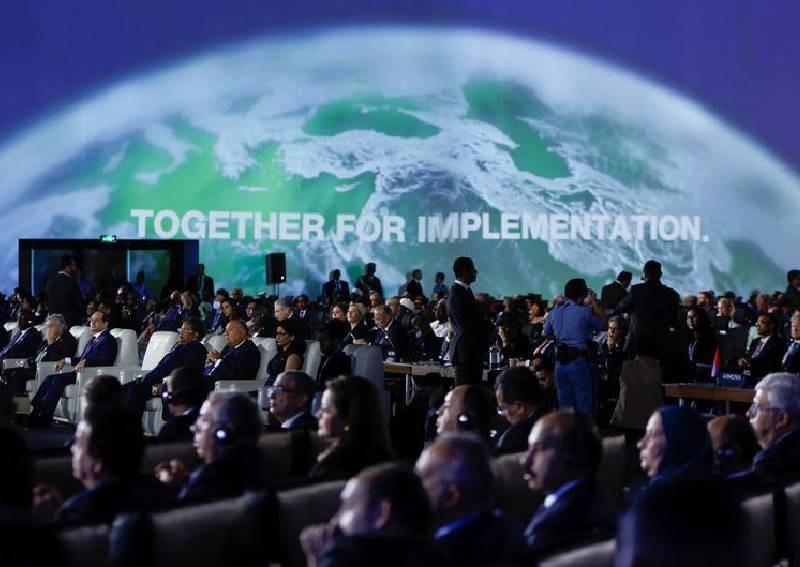
At the COP29 climate conference in Baku, Azerbaijan, a climate deal was reached early Sunday morning, but poorer nations, who are most vulnerable to climate disasters, quickly criticized the deal’s $300 billion annual pledge from wealthy countries as inadequate.
The deal, which followed two weeks of intense negotiations, was hailed by some but met with widespread condemnation from developing nations. India’s representative, Chandni Raina, described the deal as “abysmally poor” and stated that it would not address the scale of the climate crisis.
A “Paltry” Offer for the World’s Poor
The $300 billion pledge fell far below the expectations of developing nations, which had hoped for a more substantial commitment. Sierra Leone’s Climate Minister Jiwoh Abdulai accused wealthy countries of showing a “lack of goodwill,” leaving the world’s poorest nations to deal with the impacts of rising sea levels, worsening droughts, and other climate-related disasters.
Nigeria’s representative, Nkiruka Maduekwe, harshly called the deal “an insult,” further escalating the growing tensions over the financial terms of the agreement.
Protests and Accusations of Bad Faith
Protests throughout the conference highlighted the frustration of developing nations, which are suffering the most from climate change despite being the least responsible for emissions. Countries like the United States, European Union, and Japan were accused of negotiating in bad faith, obstructing a fair deal that would meet the demands of vulnerable countries.
The protests, which included silent demonstrations and statements of defiance, underscored the growing divisions between developed and developing nations over climate finance.
The Marshall Islands’ Struggle for Survival
Tina Stege, climate envoy for the Marshall Islands, expressed disappointment over the deal, acknowledging that while it was far from sufficient, it was a “start.” The Marshall Islands, like many small island nations, faces an existential threat due to rising sea levels and the intensifying effects of climate change. Stege emphasized that the financial pledge was not enough to save her country, but it was a step in the right direction.
A Divided Conference
The COP29 talks highlighted a long-standing divide over how to distribute climate finance between developed and developing countries. While the wealthier nations were unwilling to increase their financial contributions, developing countries demanded far more support to mitigate and adapt to climate change impacts.
UN Climate Chief Simon Stiell admitted the final deal was imperfect, noting that “no country got everything they wanted.” However, he emphasized that the agreement could serve as a foundation for future negotiations.
The Eleventh-Hour Deal
The climate finance pledge came only after intense overnight negotiations. Diplomats worked through the night, finalizing the deal as COP29 entered extra time. UK Energy Secretary Ed Miliband called the agreement “a critical eleventh-hour deal” but warned that the fight for a fairer financial commitment must continue.
A Starting Point, Not a Victory
Despite the deal’s approval, the lack of sufficient funding and the failure to meet developing countries’ expectations has left many feeling that the climate finance pledge is more of an “optical illusion” than a real solution. However, world leaders like UN Secretary-General Antonio Guterres urged nations to view the agreement as a “starting point,” acknowledging the urgent need for further action and commitments on climate change financing.


